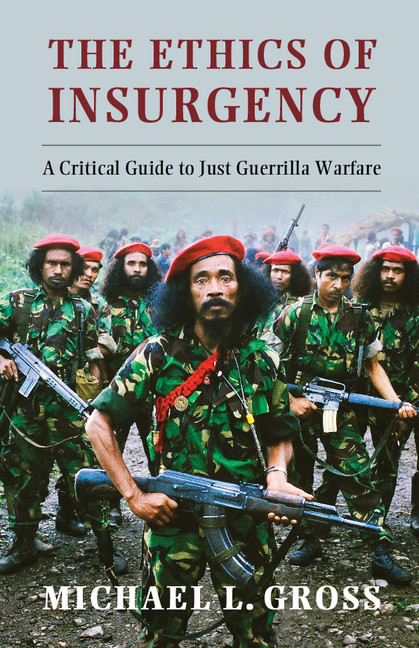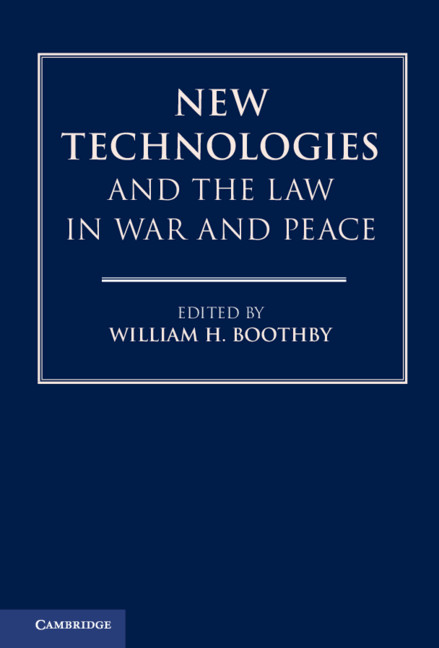The Ethics of Insurgency
As insurgencies rage, a burning question remains, “How should insurgents fight technologically superior state armies?” Commentators rarely ask this question because the catchphrase “we fight by the rules, but they don't” is nearly axiomatic. But truly, are all forms of guerrilla warfare equally reprehensible? Can we think cogently about just guerrilla warfare? May guerrilla tactics such as laying improvised explosive devices (IED), assassinating informers, using human shields, seizing prisoners of war, conducting cyber strikes against civilians, manipulating the media, looting resources, or using nonviolence to provoke violence prove acceptable under the changing norms of contemporary warfare? The short answer is “yes,” but modern guerrilla warfare requires a great deal of qualification, explanation, and argumentation before it joins the repertoire of acceptable military behavior. Not all insurgents fight justly, but guerrilla tactics and strategies are also not always the heinous practices that state powers often portray them to be.
- A concise guide to the moral practice of guerrilla warfare
- Full scale analysis of the ethics of certain controversial practices of guerrilla warfare, such as human shielding, the assassination of informants, and the detonation of improvised explosive devices (IEDs)
- First application of just war theory to non-kinetic guerrilla warfare
Reviews & endorsements
"The Ethics of Insurgency brings conceptual clarity to a vexed area of military ethics: the ethical permissibility of tactic used by weaker military forces against much stronger, usually state, militaries. It is a provocative and comprehensive exploration of a very complex issue. A valuable contribution to just war scholarship."
Martin L. Cook, Stockdale Chair of Professional Military Ethics, United States Naval War College, Newport, Rhode Island
"Although in recent years several books concerned with international law, ethics, and contemporary conflicts marginally addressed the issue of ‘just’ guerrilla warfare, this is without any doubt the first exhaustive academic discussion of the topic. … It will definitely be of great interest not only to academics and international organizations’ officers but particularly to all those, military and civilian, who in their professional capacity are called to take decisions on the battlefield influenced by the perception of the ‘justness’ of a certain way of conducting guerrilla warfare."
H-Net Reviews
'Michael L. Gross asks in this stimulating book how a relatively small fighting force, struggling toward the goal of political self-determination, might wage war ethically against a stronger, oppressive state. … a provocative text that is well worth reading and marks a serious contribution to discussions about contemporary warfare, especially insurgencies. I recommend it for scholars craving clear and insightful analysis of the highly complex questions raised by contemporary warfare, and for use with graduate students.' Anna Floerke Scheid, Studies in Christian Ethics
Product details
January 2015Hardback
9781107019072
320 pages
235 × 157 × 23 mm
0.59kg
2 maps 6 tables
Available
Table of Contents
- 1. Just guerrilla warfare: concepts and cases
- Part I. The Right to Fight:
- 2. The right to fight: just cause and legitimate authority
- 3. The right to fight: who fights and how
- Part II. Hard War:
- 4. Large-scale conventional guerrilla warfare: IEDs and ballistic missiles
- 5. Small-scale conventional guerrilla warfare: targeted killing and taking prisoners
- 6. What's wrong with human shields?
- Part III. Soft War:
- 7. Terrorism and cyber terrorism
- 8. Economic warfare and the economy of war
- 9. Public diplomacy, propaganda and media warfare
- 10. Civil disobedience and nonviolent resistance
- Part IV. Concluding Remarks:
- 11. Just war and liberal guerrilla theorizing.










